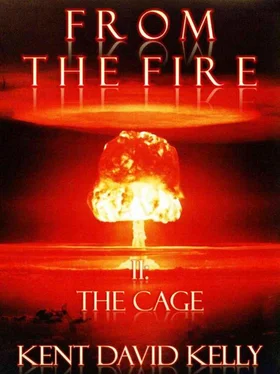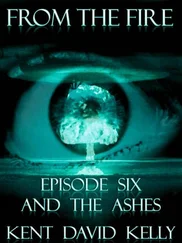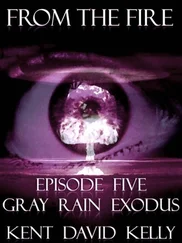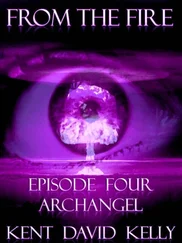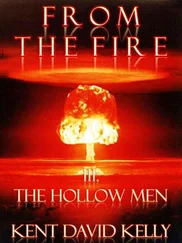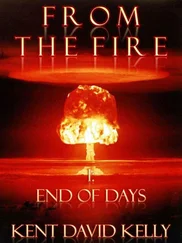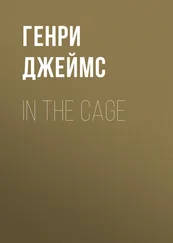And a note on the last page in Tom’s hand read in scarlet ink, “See (g)RAND TETON / (s)HOSHONE / (y)ELLOWSTONE.” The title of another binder.
She had stopped reading for awhile once she made her way into the binder’s second major section, (i)MPACT EVENT. There was a very “Tom” touch on that section’s inner divider, a taped-in photograph of Bruce Willis thumbs-upping in Armageddon , accompanied by Tom’s helpful words, “Yeah right / As if .”
The last section was about Nemesis, a highly radioactive brown dwarf star that was supposed to roll its way through the solar system every twenty-six million years, causing mass extinctions and spilling cataclysm across the fractures in reality. There was even an especially erudite and passionate thread-essay which Tom had printed out for the binder and carefully preserved inside vinyl sheet holders, which had been written by an astrophysicist who apparently harbored a half-joking reverence for Howard Phillips Lovecraft and the Mythos of Cthulhu.
She began reading with bitterness and bemusement, then grew intrigued as the pieces began to fit together. The theory sounded real, almost too real, but all of that was useless now. No fallen star, spitting Apocalyptic cascades of poison down in blood tears upon the waters, would ever spell the end of Man; no. God had been overthrown, Man had grown weary of waiting for the judgment of dark angels. Man had destroyed himself.
And after the Nemesis section, a strange cluster of handwritten pages was stuffed into the binder’s back pocket. Sophie realized that this was Tom’s improbable catastrophe binder. The top yellow sheet in the back had been titled “Evil Endings,” and under it in his own curlicue script — a style which Tom reserved for writing silly notes when he was going out early to golf — Tom had written, “That spells evil. Oh, laws, yes.”
Which meant nothing at all. Surely it was some joke, but for who?
There was only a little more. After that first page in the back there were only tables of hastily-written columns, “Revision,” “Update,” “Sync,” “Refute” and a series of hundreds of page numbers. One last Post-It note reading “Shift to New” was stuck on the last page. And there, oddly, Tom had also written a date: September 11, 2013. With a question mark.
Move to new binder. Update. Revise. Tom had had some reason to believe that the nuclear holocaust scenario had become much more likely.
The last seven months of Sophie’s life began to make sense. Last September. That was when Tom’s mood had shifted and he had almost never been at home, always on NSA assignment. Whenever he was home he was always packing and preparing to drive up to the shelter, or planning on the drafting table. That was when he had started yelling at Lacie, when the fights had begun, when Lacie had started crying and not been able to sleep through the night without hugs and water, when she had started wanting to stay with grandma, when Sophie had turned back to the pills…
Sophie closed the binder.
She looked down at her left hand spread open upon the cover, and saw that at some point she had tucked a corner of bloody gauze beneath her wedding ring as an anchor.
And that was when she started crying.
She slid her way off the clothes, and pressed her face against the floor. Her crying turned to sobbing, uncontrollable, her chest heaving, she was crawling then and her hands were moist with spilled water and pierced by invisible bits of glass. She cried out, “Not alone. No. I can’t, I can’t …”
And only the echoes were there to answer.
She woke once more, lying on her back against the concrete floor. Her left-hand fingers were curled around an empty Thermos, and a leather jacket was tucked underneath her head.
She had been dreaming of Tom, not a fantasy-dream but a real one, a memory of experiences recently in ending, experiences made all the worse by the understanding that she was asleep and living the past all over again; that the past was now, and her suffering would be redoubled in its judgment, and she would never be able to change a single detail of what had been.
~
She was sitting in the H4 by the Athanasiou Valley Airport, with her hands clutching the wheel and the spring rain sleeting down a mist of gray and rainbow. Tom was on the phone. He was yelling at her.
“Promise me!” He sounded desperate, tottering near some precipice of mind.
“I — I promise.”
“Good. Mitch, Mitch picked up Lacie from grandma’s, he knows what’s going to happen. She’s safe.”
What?
“Tom, slow down. Mitch picked up our daughter? What place are they in?”
“Listen to me!”
“What’s happening?”
“She’s safe. Get to the shelter as fast as you can. Call Mitch on the way as soon as you lock and seal, do you understand me? He’s waiting for you to call. He’s going to help you, Sophie. He’s going to make… to make sure you get through this. For Lacie. For me.”
Get to the shelter.
Sophie had had nightmares about those very words. Like a dream.
~
A dream.
Sophie began to stand. She almost fell when her right hip socket popped, but she went to all fours, clenched her teeth and stood there over the drain clamped into the great room floor. She walked over the hose, around the shattered light fixture, and sat down on the stool before the work table.
Call Mitch, Tom had said. Call Mitch when you get to the shelter.
She looked again at the four little doors set into the wall. Telephone, computer, radio, telegraph. How did a telegraph work, didn’t it need to be cabled into something? What was she supposed to do? She looked back at the binders she had arrayed, but did not want to revisit any of them. The last reading, the revelation of all that had been and all that yet must be, had nearly been more for her than she could bear.
She turned back to the four doors. The phone was dead with nothing to connect to. She resisted powering up the computer. If it worked, and it likely did, she would have access to Word and Excel, any unprinted files Tom had written, and digital family photographs. Far too many photographs, and she could not yet steel herself to have them there so near to her fingers’ touch, one click away from seeing all the loved ones who now were lost to her.
Of course there would be no Internet, no Skype. Not ever again. The computer was a tomb, and she refused to violate it.
But there was still the radio, and there was the telegraph. Which would be easier?
She stretched, then bent to look at the binders once again. Her limbs were stiff and a latent fire burned in toes and fingertips where her nerve endings had been. But now that she was moving once again, the pain was turning from liquid fire into a stiff mobility as the lactic acid crystals in her stretching muscles began to break apart.
One of the binders was entitled (t)ELEGRAPH / (m)ORSE / (e)LECTROMAGNETIC COILS. She lifted it, sifted through its schematics and was instantly overwhelmed. No. Instead, she decided on (r)ADIO / (c)ODE LISTS / (i)DAHO. Still waking from the dream, hoping that Tom had personalized something that she could connect with before she would be forced to learn the radio’s labyrinthine controls, Sophie began to read the second binder from the back.
Tom had written few notes for this particular sheaf of printouts. Apparently there were survivalist militia groups based in Idaho, Lightfoots and Border Corps and Constitutionalists, hard and competent men who were intractable in their own beliefs. Men who Tom did not seem to trust. But apparently, from his few notations on some of the printouts summarizing these groups and their facility locations, Tom must have believed that some of them might be the only viable barter and trade partners in a world where sex and food and shelter would become currencies, where women would be fought over, where warlords and migratory clans of…
Читать дальше
